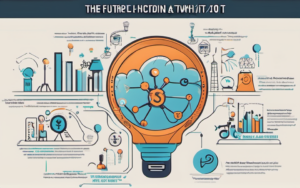The rapid pace of technological advancement presents both exciting opportunities and significant challenges for governments worldwide. Government regulation is a key factor in shaping the development and deployment of emerging technologies, ensuring their responsible and beneficial use for society. Governments are actively seeking to understand the potential impact of these technologies, develop effective strategies to manage them, and balance innovation with societal needs.
Government Responses to Emerging Technologies
Introduction
Emerging technologies, such as artificial intelligence (AI), blockchain, biotechnology, and quantum computing, are transforming various aspects of our lives. They hold immense potential to drive economic growth, improve healthcare, enhance security, and address global challenges. However, these technologies also raise complex ethical, social, and economic questions that governments must address.
The Impact of Emerging Technologies
Economic Growth and Innovation
Emerging technologies are driving economic growth and innovation by creating new industries, disrupting existing ones, and increasing productivity. For example, AI is transforming industries like healthcare, finance, and manufacturing, leading to new job opportunities and increased efficiency.
Social and Ethical Considerations
Emerging technologies also raise significant social and ethical considerations. AI algorithms can perpetuate existing biases, while blockchain technology could impact privacy and data security. Governments must ensure that these technologies are developed and deployed responsibly, considering their potential impact on individuals and society as a whole.
National Security Implications
Emerging technologies have significant implications for national security. AI-powered weapons systems raise concerns about autonomous decision-making and the potential for unintended consequences. Cybersecurity threats are evolving rapidly, and governments must invest in robust defenses and countermeasures.
Government Strategies
Regulation and Oversight
Governments are developing regulations and oversight mechanisms to guide the development and deployment of emerging technologies. This includes setting standards for data privacy, algorithmic fairness, and the ethical use of AI. Regulation can help mitigate risks, promote responsible innovation, and ensure public trust.
Investment and Support
Governments are also investing in research, development, and infrastructure to support the growth of emerging technologies. This includes funding research labs, incubating startups, and developing training programs to build a skilled workforce in these fields. Government support can foster innovation and accelerate the adoption of new technologies.
Public Awareness and Education
Raising public awareness and understanding of emerging technologies is crucial. Governments are investing in public education programs to inform citizens about the potential benefits and risks of these technologies, empowering them to participate in shaping their development and deployment.
Specific Examples
Artificial Intelligence (AI)
Governments are actively working to regulate AI, focusing on issues such as algorithmic bias, data privacy, and the ethical use of AI in areas like law enforcement and healthcare. Examples include the EU’s General Data Protection Regulation (GDPR) and the US National Institute of Standards and Technology (NIST) guidelines for AI risk management.
Blockchain Technology
Governments are exploring the potential of blockchain technology for various applications, including secure voting systems, supply chain management, and digital identity. They are also grappling with regulatory challenges related to cryptocurrency and the potential for financial instability.
Biotechnology
Biotechnology raises complex ethical and regulatory issues, such as gene editing, synthetic biology, and the potential for bioterrorism. Governments are working to balance innovation with safety concerns and ensure that these technologies are used responsibly.
Challenges and Opportunities
Balancing Innovation with Regulation
Governments face the challenge of balancing the need to promote innovation with the need to regulate emerging technologies effectively. Overly restrictive regulations could stifle innovation, while insufficient regulation could lead to unintended consequences.
Ensuring Equitable Access and Benefits
Emerging technologies have the potential to create opportunities for all, but they also raise concerns about inequality and access. Governments must work to ensure that the benefits of these technologies are shared broadly and that they do not exacerbate existing social and economic disparities.
Preparing for Future Technological Advancements
The rapid pace of technological advancement requires governments to be proactive in anticipating future developments and adapting their policies accordingly. This involves investing in research, fostering dialogue with experts, and engaging in continuous learning.
The Importance of Proactive Government Action
Governments play a crucial role in shaping the development and deployment of emerging technologies. Proactive action is essential to ensure that these technologies are used responsibly and benefit all of society. This involves developing comprehensive strategies that address ethical, social, economic, and security concerns.
Collaboration and International Cooperation
Governments must collaborate with each other, businesses, and civil society to address the challenges and opportunities presented by emerging technologies. International cooperation is essential to establish global standards and ensure that these technologies are used responsibly on a global scale.
Looking Ahead to the Future of Technology and Governance
The relationship between technology and governance is evolving rapidly. As emerging technologies continue to transform our lives, governments must be prepared to adapt and innovate. This includes investing in research, developing new regulations, fostering public awareness, and engaging in international cooperation. By working together, we can ensure that emerging technologies are used to create a more just, equitable, and sustainable future.




